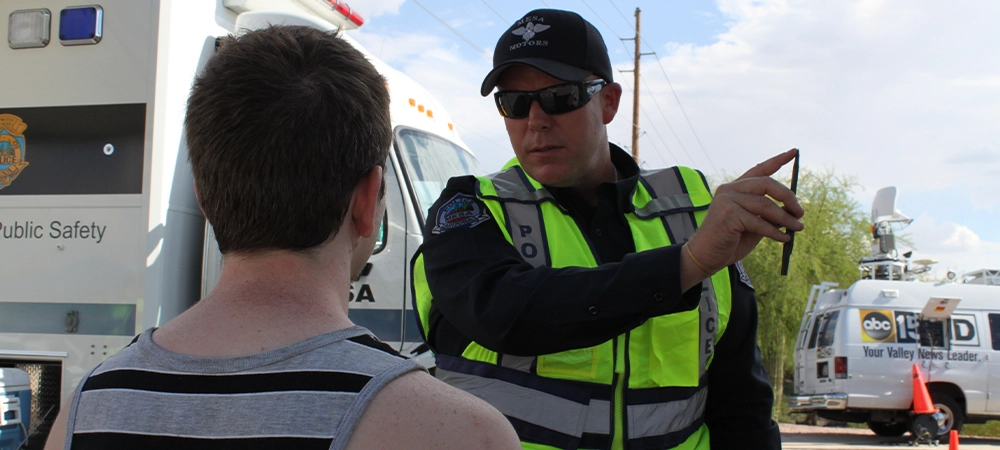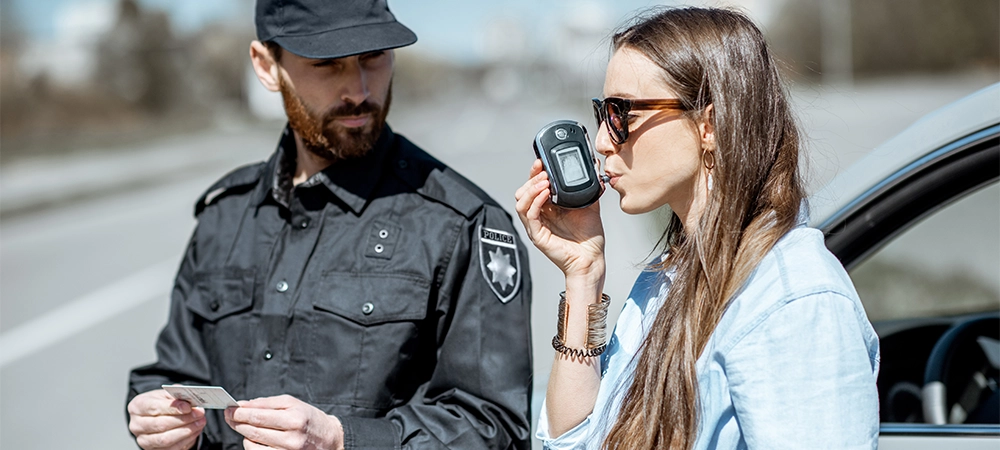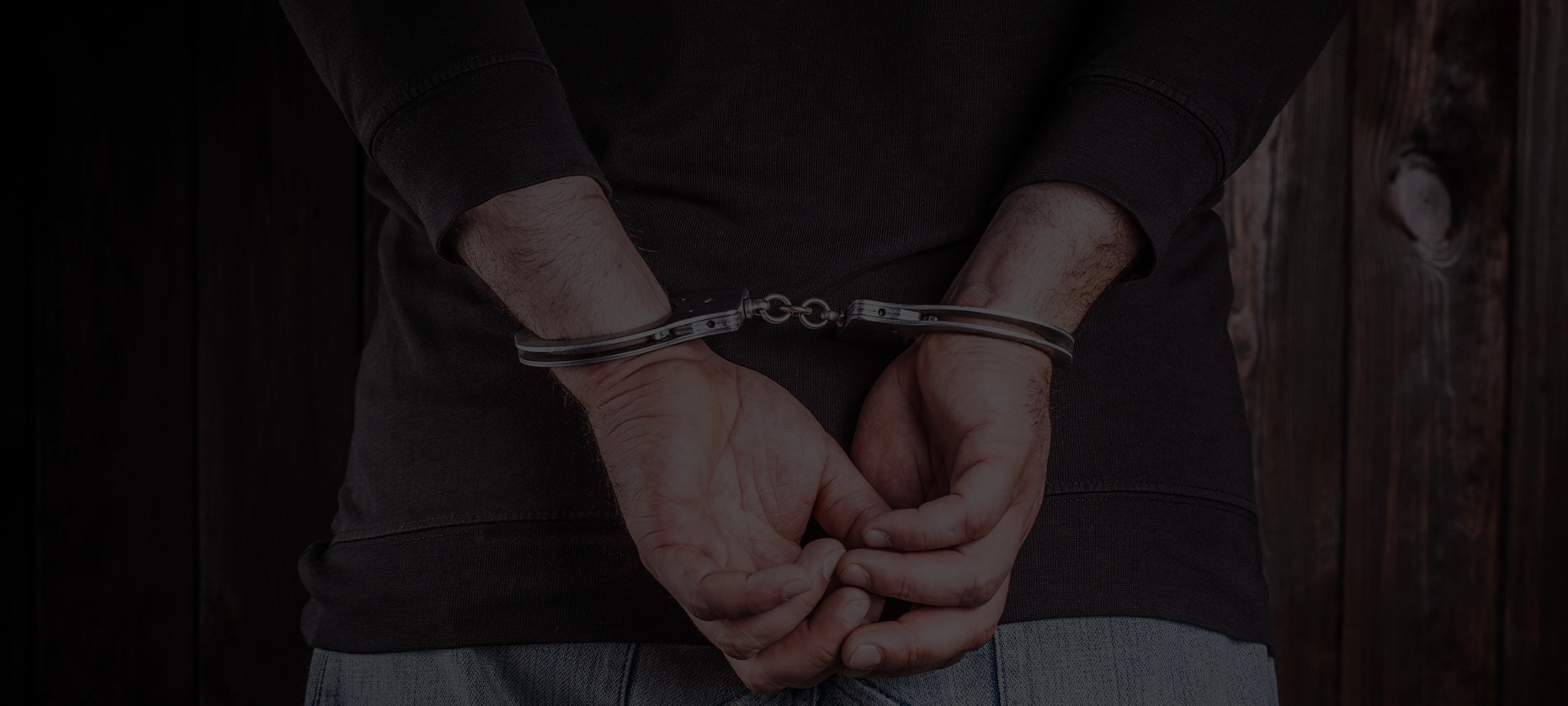DUIs can feel like open and shut cases. You either failed a field sobriety test or a breathalyzer and now you have to face the consequences. The reality is that there are many DUI defence strategies that can cast doubt on these results.
With the serious consequences of a DUI, it’s important to hire an expert lawyer who can challenge the evidence and find ways to either reduce the charges or get a not-guilty verdict. Here’s how a DUI lawyer can fight the charges.
Related Article: https://www.agpllp.ca/how-can-a-dui-lawyer-reduce-dui-charges/
Field Sobriety Tests (FSTs)
Field Sobriety Tests are usually conducted as either a preliminary test or when an officer doesn’t have a breathalyzer available. The test has three different parts that examine your cognitive function and ability to operate a vehicle.
1. Horizontal Gaze Nystagmus (HGN) Test
This test involves following a moving object with your eyes, such as a pen. Intoxicated people will often have involuntary jerking of the eyes, but this doesn’t always mean you are drunk. Here are DUI defence strategies:
Medical Conditions – You may have natural nystagmus or another medical condition that causes uncontrollable eye movement.
Improper Administration – The officer must follow protocols for this test. If they hold the pen too close or too far, this can affect the result.
Environmental Factors – Poor lighting or distractions can affect your eyesight, such as vehicle headlights shining in your eyes.

2. Walk-and-Turn Test
This test is for your balance. Here, you walk in a straight line, turn on one foot, and then walk back. Along with balance, it will also test your coordination and ability to follow instructions. Here are the defence strategies:
Physical Limitations – You may have a condition that affects your mobility, such as arthritis or a sporting injury. Medical records can often support this defence.
Improper Instruction – To follow instructions, they have to be given clearly and accurately. If you feel there was a miscommunication, it can invalidate the test.
Environmental Conditions – The conditions can also play a factor, such as a slippery or uneven surface. There are many factors that can affect your balance.
3. One-Leg Stand Test
In the final test, you need to stand on one leg and count. This tests your cognitive function as well as your balance. Here are the defence strategies:
Health Issues – There are a wide number of health issues that can affect your ability to perform well on this test.
External Influences – We talked about slippery or uneven ground before, but other factors can come into play such as weather conditions or footwear.
Proper Procedures – If the officer hasn’t conducted the test in the right manner, then it can be contested.
Breathalyzer Tests
A breathalyzer may be taken at the police station. A few factors can affect the test.
1. Device Calibration and Maintenance
Breathalyzers need to be regularly calibrated and maintained. If not, they can give inaccurate readings. Here are the defence strategies:
Maintenance Records – It’s a great idea to request the maintenance logs of a breathalyzer. This can reveal any gaps in calibration schedules and cast some doubt on its accuracy.
Operator Error – The person administrating the test must be adequately trained to do so. If not, mistakes can lead to inaccurate results.
2. Biological Factors
It isn’t just calibration that can negatively affect these results; biological factors can also come into play. This includes medical conditions and certain diets. Here are the defence strategies:
Medical Conditions – There are some medical conditions that can produce higher levels of acetone, which is detected by a breathalyzer. Two notable conditions are GERD (Gastroesophageal Reflux Disease) and diabetes.
Dietary Influences – What we’ve eaten can also impact the score. Low-carb diets and fasting can increase your levels of acetone. Providing evidence of these diets can help your defence.

3. Environmental Factors
Certain environmental factors can also lead to a false positive. Here are DUI defence strategies:
Chemical Exposure – If you have recently been exposed to the likes of paint fumes and solvents, then this can skew the results.
Other Alcohol – Alcohol isn’t just found in our drinks. Residual alcohol from mouthwash or a dental procedure can give a high reading.
Other DUI Defence Strategies
The avenues to fight a DUI don’t just stop at how these tests were carried out; you can also challenge them in other ways. The Canadian Charter of Rights ensures that certain rules and procedures need to be followed.
For DUI’s, a big factor can be an unlawful stop. The police had to have reasonable grounds to stop your vehicle. If they didn’t, then any evidence they have taken may have been inadmissible. You also should have been informed of your right to counsel.
There may have also been delays in the administration of your test. These delays can result in an inaccurate representation. For example, if you had started driving straight after your last drink, then your BAC may rise above the legal limit after you were stopped.
Final Thoughts
The importance of a DUI lawyer is clear. Not only will they look for defence strategies, but they will use their legal expertise to find holes in the evidence. It’s vital to give them details of exactly what happened during your stop.
The consequences of a DUI can have a significant impact on your life, so it’s important to fight the charge the best you can. If you’re looking for help fighting a DUI, then contact AGP LLP today. We’ll work with you to get the best outcome for your case.





